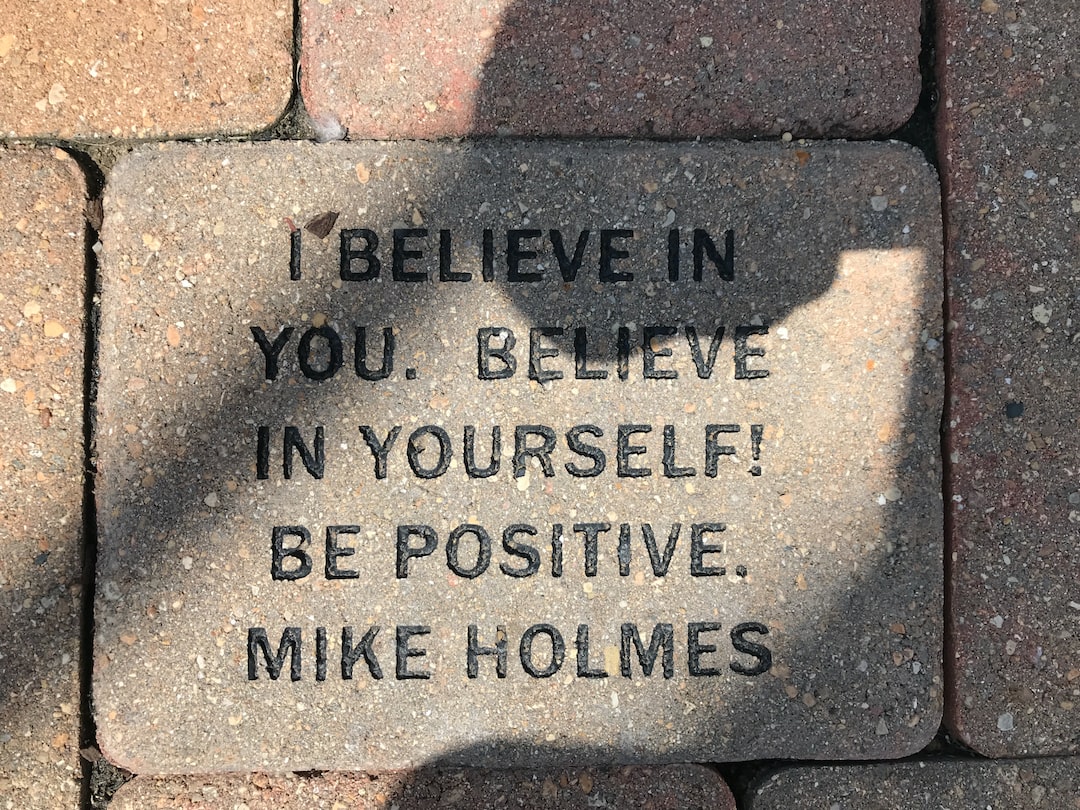Our thoughts and mindset have a significant impact on our emotions, behaviors, and overall well-being. A positive mindset can help us lead a fulfilling life and improve our relationships with others. It helps to approach life’s challenges with optimism, focus on the good, and seek opportunities for growth and learning.
On the other hand, a negative mindset can lead to feelings of sadness, anxiety, and stress, which can hinder our ability to live a productive and happy life. Negative thinking patterns can also hold us back from achieving our goals and pursuing our passions.
Therefore, cultivating a positive mindset is crucial for our mental and physical health, and it is a skill that anyone can learn and practice.
In this blog post, we will explore the science behind positive thinking, the impact of language on our mindset, ways to cultivate gratitude, how to embrace and learn from setbacks, the power of relationships, and creating a supportive environment that fosters positivity.
By the end of this post, you will have a better understanding of how to shift towards a positive mindset and lead a more fulfilling life.
The Science Behind Positive Thinking
Research has shown that there are numerous benefits to cultivating a positive mindset. According to the Mayo Clinic, positive thinking can lead to reduced stress levels, better coping skills, increased resilience, and improved overall well-being. It has also been linked to lower rates of depression, anxiety, and other mental health issues.
One reason for the benefits of positive thinking is its effect on our physiological responses. When we think positively, our bodies release hormones such as dopamine and endorphins, which create feelings of happiness and pleasure. This can also lead to a decrease in the stress hormone cortisol, which can be harmful in high levels.
Positive thinking can also help us reframe our experiences and find meaning in difficult situations. When we approach challenges with a positive mindset, we are more likely to see them as opportunities for growth and learning rather than insurmountable obstacles.
Additionally, positive thinking can have a powerful impact on our relationships and social experiences. When we approach others with positivity and optimism, we are more likely to build strong and supportive connections. This, in turn, can help us create a sense of community and belonging, which can be vital to our mental and emotional health.
Overall, the benefits of positive thinking are clear. From our physical health to our relationships and beyond, cultivating a positive mindset can have a profound impact on our lives. So why not start today?
When we approach challenges with a positive mindset, we are more likely to see them as opportunities for growth and learning rather than insurmountable obstacles.
Mind Your Language: The Impact of Words on Your Mindset
If you want to cultivate a positive mindset, it’s important to recognize the impact that your language has on your thoughts and emotions. The words you use to describe yourself, your experiences and your environment can either reinforce negativity or promote positivity.
Negative self-talk can be incredibly damaging to your mental health and can hold you back from achieving your goals. When you tell yourself that you’re not good enough or that you’ll never succeed, you’re creating a self-fulfilling prophecy. Your mindset affects your behavior and your behavior affects your outcomes.
On the other hand, using positive language can have a profound impact on your mental and emotional wellbeing. If you tell yourself that you’re capable, resilient and resourceful, you’re more likely to believe it and act accordingly.
One way to start minding your language is to pay attention to your thoughts and challenge negative self-talk when it arises. Instead of beating yourself up for making a mistake, try reframing the situation in a more positive light. For example, instead of thinking “I’m such an idiot for forgetting my keys,” try thinking “I made a mistake, but I can learn from it and do better next time.”
Another way to promote positivity through language is to practice affirmations. Affirmations are positive statements that you repeat to yourself in order to reprogram your thought patterns. For example, you might say “I am capable and deserving of success” or “I am grateful for all the good in my life.”
It’s important to note that simply thinking positive thoughts won’t magically make all your problems disappear. However, a positive mindset can help you approach challenges with more resilience and creativity. It can also help you cultivate gratitude and enjoy the present moment.
In conclusion, paying attention to your language is a powerful tool for cultivating a positive mindset. By challenging negative self-talk and practicing affirmations, you can train your brain to focus on the good and see opportunities where others see obstacles. In the next section, we’ll explore ways to practice gratitude and shift your focus towards positivity.
For example, instead of thinking “I’m such an idiot for forgetting my keys,” try thinking “I made a mistake, but I can learn from it and do better next time.
“Cultivating Gratitude”: Ways to Practice Gratitude and Shift Your Focus
Practicing gratitude is a powerful tool in shifting your mindset from a negative one to a positive one. When we focus on what we are grateful for, we train our mind to see the good in our lives instead of dwelling on the negative. Here are a few ways to cultivate gratitude in your life:
1. Gratitude Journaling: Take a few minutes each day to write down things you are grateful for. This can be anything from a good cup of coffee in the morning to the support of a loved one.
2. Mindful Gratitude: Take a moment to reflect on something positive that happened to you during the day. Close your eyes, take a deep breath, and really allow yourself to feel gratitude for that moment.
3. Give Back: Volunteering and doing kind acts for others can bring a sense of gratitude to your life. When we help others, we are reminded of the good in humanity and how lucky we are to have the ability to make a difference.
4. Gratitude Walks: Taking a walk in nature and reflecting on the beauty around us can bring a sense of gratitude to our lives. Notice the colors of the leaves, the sound of the birds, and the feeling of the sun on your skin.
By actively practicing gratitude in our lives, we can train our minds to focus on the good. This shift in mindset can lead to increased happiness and overall well-being. So, take a few moments each day to reflect on what you are grateful for and watch as your mindset shifts to a more positive one.
Give Back: Volunteering and doing kind acts for others can bring a sense of gratitude to your life.
Ride the Wave: How to Embrace and Learn from Setbacks
Life is full of ups and downs, and setbacks are inevitable. No matter how hard you try, you will face challenges, obstacles, and failures on your journey. However, what matters most is how you respond to these setbacks. One of the most effective ways to deal with setbacks is to ride the wave.
When you ride the wave, you accept the situation as it is and acknowledge your emotions, whether it be disappointment, frustration, or anger. You don’t try to resist or suppress your feelings; instead, you allow them to wash over you, like a wave crashing onto shore. By doing so, you can process your emotions and gain perspective on the situation.
By embracing setbacks, you can also learn from them. Every setback is an opportunity to gain insight into your strengths and weaknesses. It’s a chance to reflect on what went wrong, what you could have done differently, and what you can do better in the future. Setbacks can be a catalyst for growth and development, as they give you the chance to learn and improve.
The next time you face a setback, try to view it as a learning experience. Don’t let it defeat you or hold you back; instead, use it as an opportunity to grow and improve. Remember that setbacks are temporary and that with time and effort, you can overcome them. Keep a positive attitude and focus on your goals, and you will find that setbacks are just a small bump in the road to success.
In conclusion, setbacks are a natural part of life, but they don’t have to hold you back. By riding the wave and embracing setbacks, you can gain perspective, learn from the experience, and grow as a person. So, when you next face a setback, remember to take a deep breath, accept the situation, and focus on the opportunities it presents.
Setbacks can be a catalyst for growth and development, as they give you the chance to learn and improve.
Surround Yourself with Positivity: The Power of Relationships and Creating a Supportive Environment
Positive thinking is not just a solo journey; it requires the support and encouragement of others as well. In fact, research suggests that relationships play a significant role in shaping our thoughts and perceptions, especially in times of stress or adversity. Therefore, to cultivate a positive mindset, it’s essential to surround yourself with positive people and foster a supportive environment in all areas of your life.
First and foremost, it’s crucial to evaluate the quality of your relationships, be it with family members, friends, colleagues, or romantic partners. Ask yourself, do these people lift me up or bring me down? Do they encourage and motivate me to be my best self, or do they constantly criticize or belittle me? It’s not always easy to make this assessment, but it’s necessary for your mental and emotional well-being.
Once you identify the positive relationships in your life, make an effort to nurture them further. Don’t take them for granted and show your appreciation and gratitude for their presence in your life. Likewise, seek out opportunities to meet new people who share your values and interests, whether it’s through social events, volunteer work, or online communities. Building new relationships can broaden your perspectives and provide you with a new source of positivity and motivation.
Besides relationships, another way to create a supportive environment is to surround yourself with positive affirmations and reminders. This could be anything from keeping a gratitude journal, displaying motivational quotes or pictures, or creating a vision board that inspires and motivates you. By having these visual cues around you, you can stay focused on your goals and remind yourself of the good things in your life, even during tough times.
Lastly, don’t forget to focus on creating a positive relationship with yourself. This means practicing self-care, self-compassion, and self-love. Treat yourself with kindness and respect, honor your needs and boundaries, and celebrate your achievements, no matter how small they may be. By being kind and compassionate to yourself, you not only improve your relationship with yourself but also become a positive influence on others around you.
In conclusion, positivity is contagious, and it flourishes in supportive relationships and environments. Surrounding yourself with positivity and fostering a supportive community can help you cultivate a positive mindset, even in the face of adversity. Evaluate your relationships, nurture the positive ones, seek out new connections, surround yourself with positive reminders, and be kind and compassionate to yourself. By following these steps, you will be well on your way to a more positive and fulfilling life.
Besides relationships, another way to create a supportive environment is to surround yourself with positive affirmations and reminders.
Conclusion: How to Start Cultivating Positive Thinking Today
Positive thinking can have a profound impact on our mental and physical well-being. It can reframe our perspective, lower stress levels, and improve our mood. The benefits of cultivating a positive mindset are numerous and transform lives in countless ways.
Now that we’ve explored the science behind positive thinking, the impact of words on our mindset, ways to practice gratitude, how to embrace setbacks and create a supportive environment, it’s time to put these strategies into practice.
To start cultivating positive thinking today, it’s essential to identify and challenge negative self-talk. Negative self-talk can be a barrier to positive thinking, and it’s crucial to learn how to identify and reframe these thoughts. Practice self-compassion and positive affirmations to counteract negative self-talk, and intentionally focus on positive thoughts and experiences.
In addition, cultivate gratitude by keeping a daily gratitude journal or practicing mindfulness. Surround yourself with positivity by seeking out supportive relationships and creating environments that inspire positivity. Lastly, remember to embrace setbacks and learn from them.
By integrating these strategies into your daily routine, you can gradually cultivate a positive mindset that strengthens your mental and physical health, enhances your relationships, and leads to a more joyful and fulfilling life.
Start today, take small steps, and continue to practice these strategies daily. Over time, you’ll notice a shift in your perspective, and positive thinking will become a natural part of your life.





